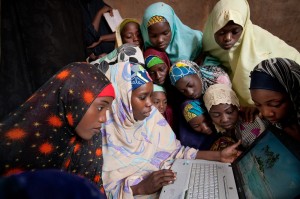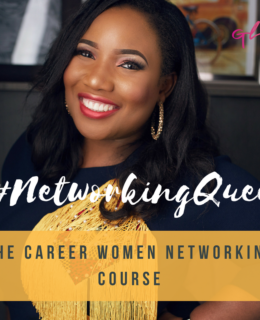By Mark Tuschman
In the middle of the night on April 14, 2014, the Islamist terrorist group Boko Haram broke into the hostels where 276 schoolgirls slept in the town of Chibok in north-east Northeast Nigeria. Corralled into trucks, the girls were held by gunpoint and abducted into the night. Boko Haram’s leader, Abubakar Shekau, later claimed that under Sharia law the girls should not have been at the school learning to read and write, but rather that they should already be married since, according to him, girls as young as nine are suitable for marriage. Held in captivity, the young girls have been forced into marriage with Boko Haram members with a reputed “bride price” of about twelve U.S. dollars. It was later confirmed that Nigerian military had four hours advanced warning of the kidnapping, but failed to send reinforcements to protect the girls.
In the immediate weeks following, the international outcry from the Western world ricocheted back and forth through the social media hashtag #BringBackOurGirls. The conversation was “trending” as people “liked” and reposted the hashtag on their Facebook and Twitter accounts. Almost three months later, the social- media flurry has simmered to a dindown, attention has drifted on to the next trending sensation, and meanwhile, the kidnapped girls are still in captivity.
As an international photographer who has dedicated the latter part of my career to documenting the basic lack of human rights that women face in many parts of the world, I am deeply troubled by the unconscionable trauma endured by these girls. I am also troubled by the impact social media may have on our attention-span when it comes to attending to human- rights violations that cannot be forgotten.
In 2010, I had the privilege of spending several days in a small village in Northern Nigeria, photographing young women sponsored by the Bixby Girls’ Education project. Given the opportunity to be taught only once a week for two hours, the girls exhibited great intensity as they passed around a single, very worn book and each read a paragraph. Their attention was complete and unwavering as they soaked up each and every word that was read aloud. Most of the young women began the program illiterate, and some were removed from the program by their parents, who had arranged marriages for their daughters. When everyone had had a turn reading, their mentor brought out a laptop computer and all the girls surrounded her, jostling with each other to be able to get a view of the computer screen. Their hunger to get a glimpse of the outside world was palpable.
Since April 14th, Boko Haram, seemingly galvanized by the attention, has increased the frequency of their attacks; other girls have been kidnapped, but the social media spotlight seems to have lost interest in following the story. On a daily basis Nigerian women suffer abuse of their human rights through violence in their homes, female genital mutiliaton, rape and sexual assault, enforcement of gender biased laws and forced childhood marriages, among other violations. Every single day, Nigeria loses about 145 women of childbearing age; early pregnancy is the leading cause of death among young women. Currently, less than 20 percent of health facilities offer emergency obstetric care, and only 35 per cent of deliveries are attended by skilled birth attendants (UNICEF).
One in three of all women and girls aged 15-24 years has been a victim of sexual violence & Forty per cent of Nigerian children aged 6-11 do not attend any primary school. In the North, the gender gap remains particularly wide, and the proportion ratio of girls to boys in school ranges is from 1 girl to 2 boys, or to 1 to 3 in some states. (UNICEF). The earnest intent to learn of the young women I photographed of the Bixby Girls’ Education project remains with me to this day. It is empowering that they learned how to read and write; I could sense, however, that there was so much more they could achieve. I felt sad that these girls were unlikely to ever have a chance to achieve their potential, to become doctors, nurses, lawyers, scientists, artists. Their “choice” was limited to getting married and to having frequent pregnancies. The situation of these girls is not unique; unfortunately, it is all too common. The tragic loss of potential belongs not only to these young girls who have such a desire to learn, but also to the nation of Nigeria and to the wider world.
For a few short weeks, our attention was grasped by drawn to the horror of the Boko Haram kidnappings: girls learning—very much like the ones I photographed—presented such a dangerous threat to the world order of the militants that they were forced to become their cooks, sex slaves, and wives. Our social- media streams tweeted and posted #BringBackOurGirls, but within a few weeks, the trend piqued and washed away like a wave into the vast sea of never-ending headlines. There has not been a sufficient international intervention or action to help find or rescue these girls. Since then, more girls and women have been abducted, simply for going to school or leaving their homes, yet these incidents haven’t been widely reported and the trending conversation around the #BringBackOurGirls campaign has largely died out.
This is just one of countless situations in the world where girls and women are treated as less-than human. While well-intentioned, a hashtag or a conversation online is not going to fix these injustices. Sadly, people may think they have already done something by sharing a hashtag, confusing a single click of a button with real action. These women and girls deserve more of our attention than the time it takes to repost a headline on Facebook. Their rights continue to be violated even as our attention has drifted onto the next big trend.
Regardless of whether we are born male or female, it’s our moral duty to stand up for the rights of women. Women’s rights are human rights, and until men we all get fully involved, change will progress too slowly.
In response to this humanitarian crisis, Mark has spent the last twelve years documenting the lack of autonomy of basic human rights that millions of women and girls in developing countries have over their own lives and bodies. His forthcoming photo-documentary book, Faces of Courage: Intimate Portraits of Women on The Edge, brings their voices and images to the forefront of global consciousness. Read more about the book here







Leave a Reply